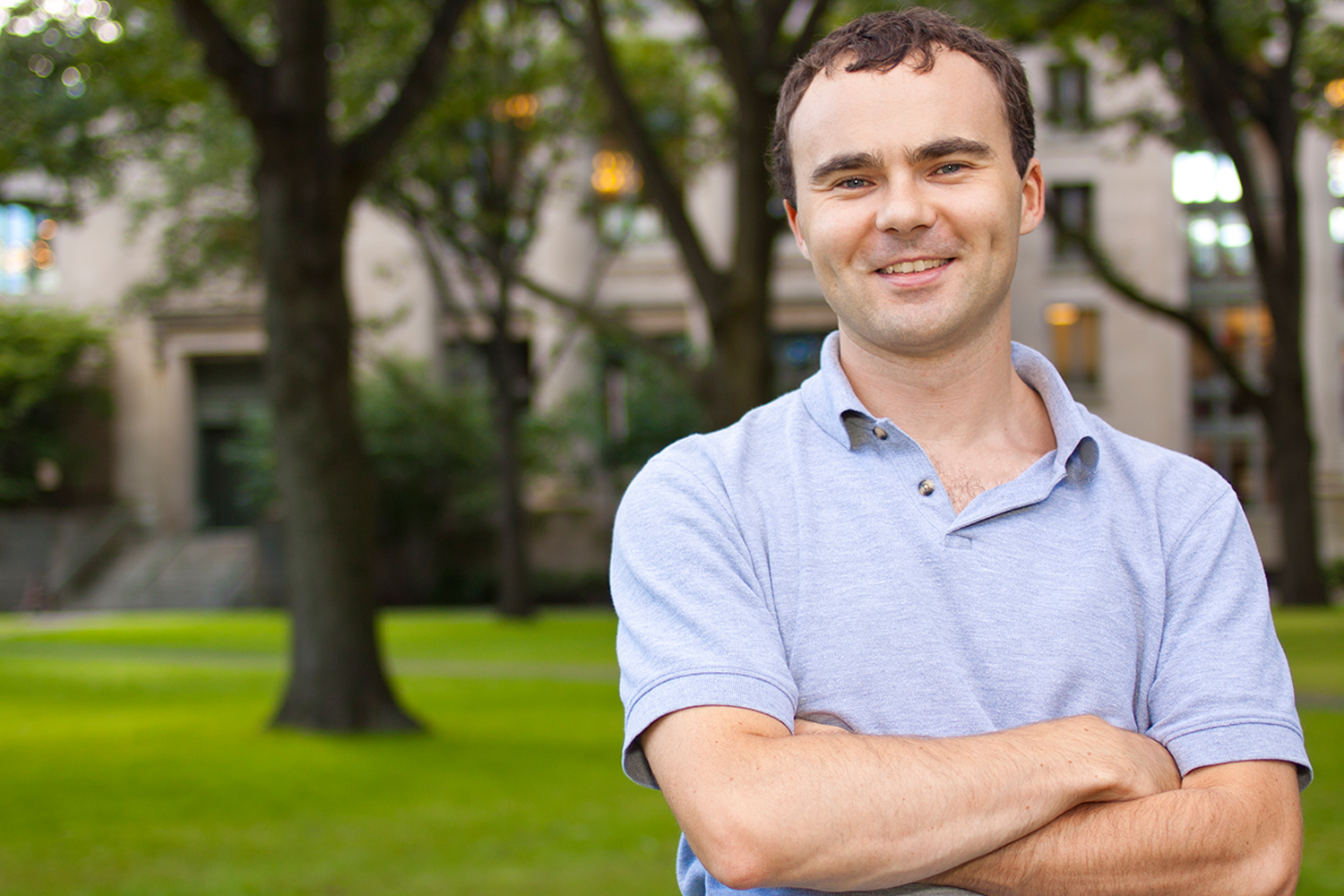Walsh will focus on wearable robotics to assist the disabled and able-bodied, as well as tools for minimally invasive diagnosis and disease treatment
Conor Walsh, Ph.D., joined the Wyss Institute this month as a new core faculty member who will focus on developing smart medical devices for diagnostic, therapeutic, and assistive applications.

Among his current research projects is the development of compact robots that operate inside medical imaging machines to enable the highly accurate placement of biopsy needles and thermal ablation probes. With their enhanced precision, these tools could help diagnose early-stage cancer by targeting much smaller tumors and could help improve treatment efficacy by focusing on the diseased cells and minimizing damage to the surrounding healthy tissue.
Walsh’s team is also developing a device to more accurately and safely drill into bone. With an automatic safety mechanism that is passively triggered upon drill bit penetration, this device could help physicians safely create small holes in the skull for the insertion of pressure monitoring devices for patients with head trauma.
In collaboration with other members of the Wyss Institute, Walsh is developing wearable robotic devices that are soft and pliable, unlike traditional exoskeletons that use rigid components. These soft robots could help people with disabilities improve the control of muscles used for walking, lifting, and grasping. They could also assist military personnel by minimizing the strain of heavy load bearing on the musculoskeletal system, which would help conserve energy during long missions.
Walsh, who holds mechanical engineering degrees from both Trinity College in Dublin and the Massachusetts Institute of Technology, was recently named Assistant Professor of Mechanical and Biomedical Engineering at the Harvard School of Engineering and Applied Sciences (SEAS).
In addition, he is founder of the Harvard Biodesign Lab, which brings together researchers from the engineering, industrial design, medical, and business communities to develop technologies for smart medical devices. These technologies are inspired by the results of experiments in human biomechanics and their development is influenced by time spent in the operating room to understand the unmet needs from clinicians. Walsh will be working closely with the Wyss Institute’s industrial partners and technical experts to translate these technologies into products that meet real-world medical needs.
With the addition of Walsh, the Wyss Institute now has 17 core faculty members, all of whom are leaders in the field of Biologically Inspired Engineering. Their academic affiliations include Harvard Medical School, SEAS, and Boston University, and their research and clinical affiliations include Harvard’s affiliated hospitals.
When Conor isn’t working to develop medical devices, he likes to get outside to hike, ski, snowboard, and explore the National Parks. He also participates in triathlons.